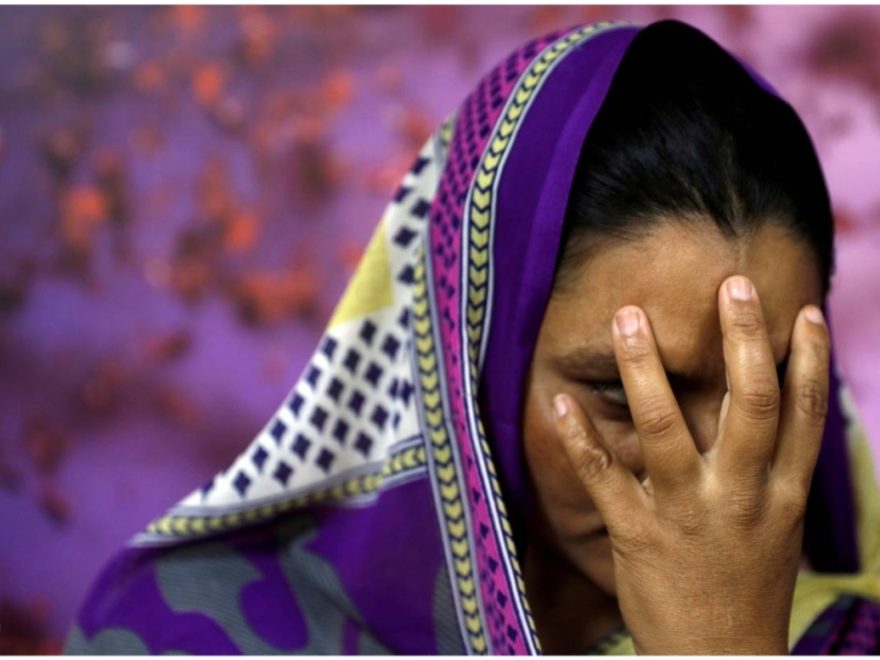MODERN DAY SLAVERY in COMMONWEALTH COUNTRIES
RELEVANT for MAINS GS 1; PRELIMS GS; SOCIOLOGY PAPER 2
Commonwealth Human Rights Initiative and Walk Free foundation on World Day against Trafficking in persons announces the launch of a major new international report “Eradicating Modern Slavery: An assessment of Commonwealth government
- The report shows that progress to achieve SDG 8.7 is far too slow and that all Commonwealth governments must do much more to eradicate modern slavery. There has been some progress since 2018; for example, Pakistan passed comprehensive trafficking legislation, the UK established an Evidence and Policy Centre for research, The Gambia ratified the Optional Protocol to the Convention on the Rights of the Child on the involvement of children in armed conflict, and Australia adopted a Modern Slavery Act requiring companies to report on their actions to combat modern slavery.
- Yet despite this sporadic progress, critical gaps remain. Only one third of Commonwealth member states have criminalised forced marriage and 23 have failed to criminalise commercial child sexual exploitation. Out of 54 Commonwealth countries, only four have engaged with business to investigate supply chains, and all countries reported gaps in victim assistance programs.
- COVID-19 has increased uncertainty and has potentially undone the little progress achieved so far. The pandemic has exposed the weaknesses in systems of protection and exacerbated the vulnerability of those most at risk. While COVID-19 has brought much of society to a standstill, the inhumane business of modern slavery continues and the lives of the most vulnerable have been made more precarious. High-demand sectors are seeing major recruitment drives, and fewer labour supply chain checks have led to an increase in the risk of modern slavery.
- The report exposes the existing gaps in Commonwealth government responses to modern slavery and a roadmap for action to end it. The report thrown light on the condition of modern slavery in the Commonwealth countries.
- According to the report the countries comprises 40% of the total people living in conditions of modern slavery. Modern forms of slavery can include .
- Debt bondage, where a person is forced to work for free to pay off a debt,
- Child slavery, forced marriage, domestic servitude and forced labour, where victims are made to work through violence and intimidation.
- 54 nations were found lacking in actions to eradicate modern slavery by 2030.
- Around 1/3rd commonwealth countries have criminalised forced marriage while 23 had not criminalised commercial sexual exploitation of children.
- India performed poorly in tackling slavery as it has no National Coordinating body or National Action plan in place.
- About Commonwealth Human Rights Initiatives
- It is an independent, non-profit, non-partisan, international non-governmental organisation working in the area of human rights.
- In 1987, several Commonwealth professional associations founded CHRI.
- Through its reports, research and advocacy, CHRI draws attention to the progress and setbacks to human rights in Commonwealth countries.
- It is headquartered in New Delhi, India, with offices in London, UK and Accra, Ghana.
- CHRI’s work is split into two core themes:
- Access to Information and Access to Justice, which includes Prison Reform, Police Reform, and advocacy on media rights and the South Asia Media Defenders Network (SAMDEN).
About Commonwealth of Nations
- It is a political association of 54 member states, nearly all former territories of the British Empire.
- The chief institutions of the organisation are the Commonwealth Secretariat, which focuses on intergovernmental aspects, and the Commonwealth Foundation, which focuses on non-governmental relations between member states.
- The Commonwealth dates back to the first half of the 20th century with the decolonisation of the British Empire through increased self-governance of its territories.
- It was originally created as the British Commonwealth of Nations through the Balfour Declaration at the 1926 Imperial Conference, and formalised by the United Kingdom through the Statute of Westminster in 1931.
- The current Commonwealth of Nations was formally constituted by the London Declaration in 1949, which modernised the community and established the member states as “free and equal”.
- The human symbol of this free association is the Head of the Commonwealth, currently Queen Elizabeth II; the 2018 Commonwealth Heads of Government Meeting appointed Charles, Prince of Wales to be her designated successor, although the position is not hereditary.
- Member states have no legal obligations to one another, but are connected through their use of the English language and historical ties.
- Their stated shared values of democracy, human rights and the rule of law are enshrined in the Commonwealth Charter and promoted by the quadrennial Commonwealth Games.
- It covers 1/3rd of Global population and 20% of the world area.
For more such notes, Articles, News & Views Join our Telegram Channel.
Click the link below to see the details about the UPSC –Civils courses offered by Triumph IAS.
https://triumphias.com/pages-all-courses.php
Connect to Vikash Ranjan Sir #8586861046

